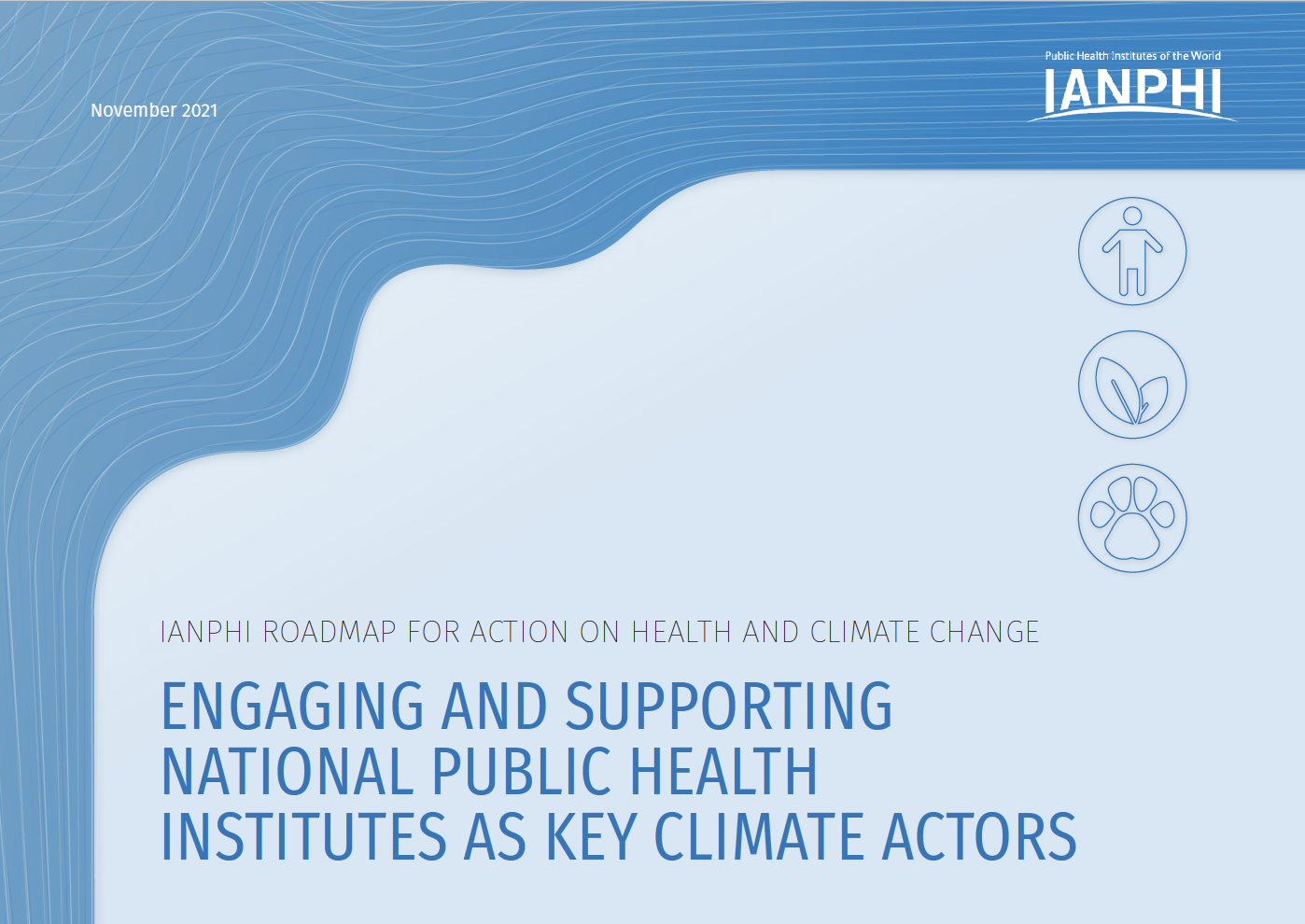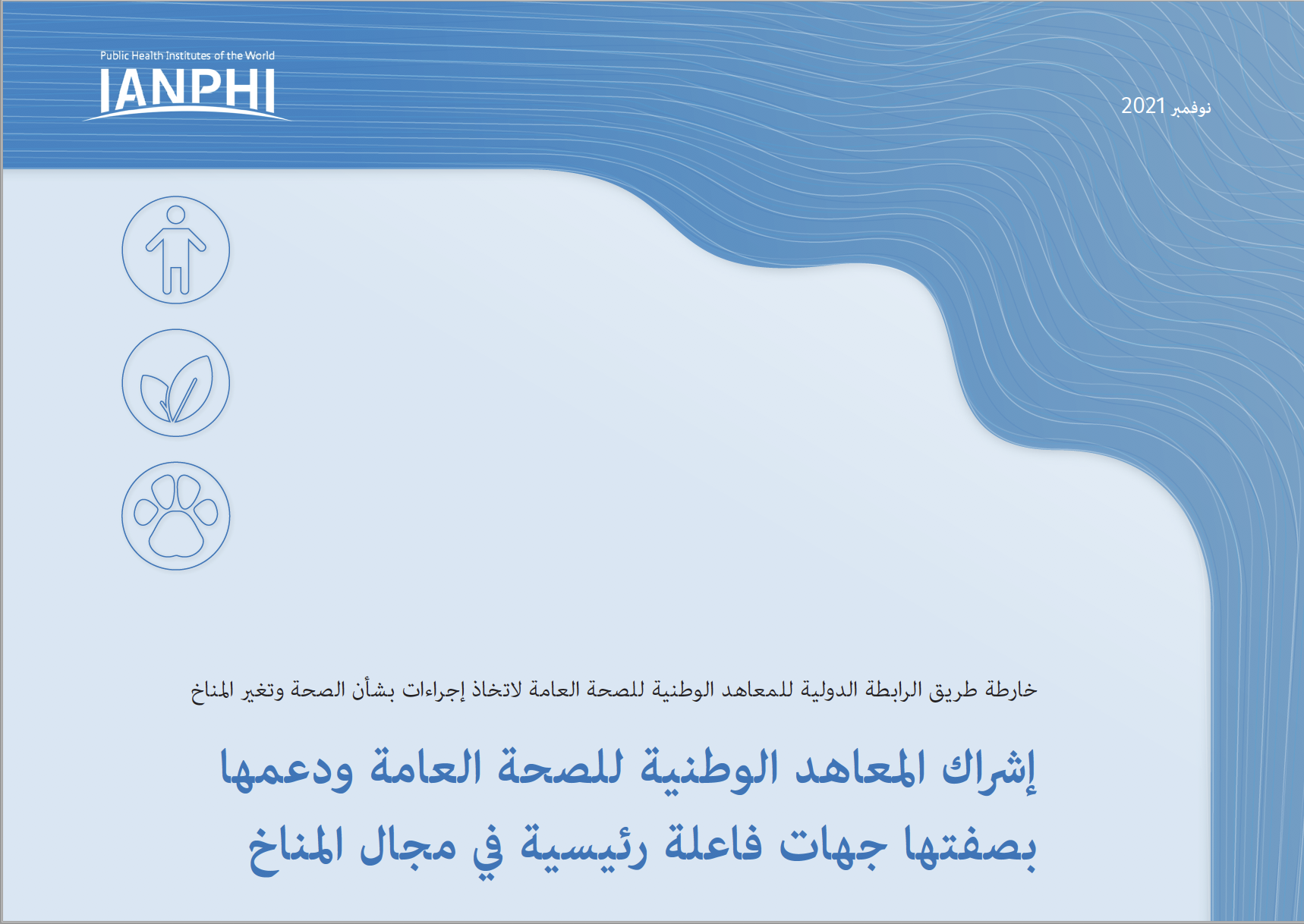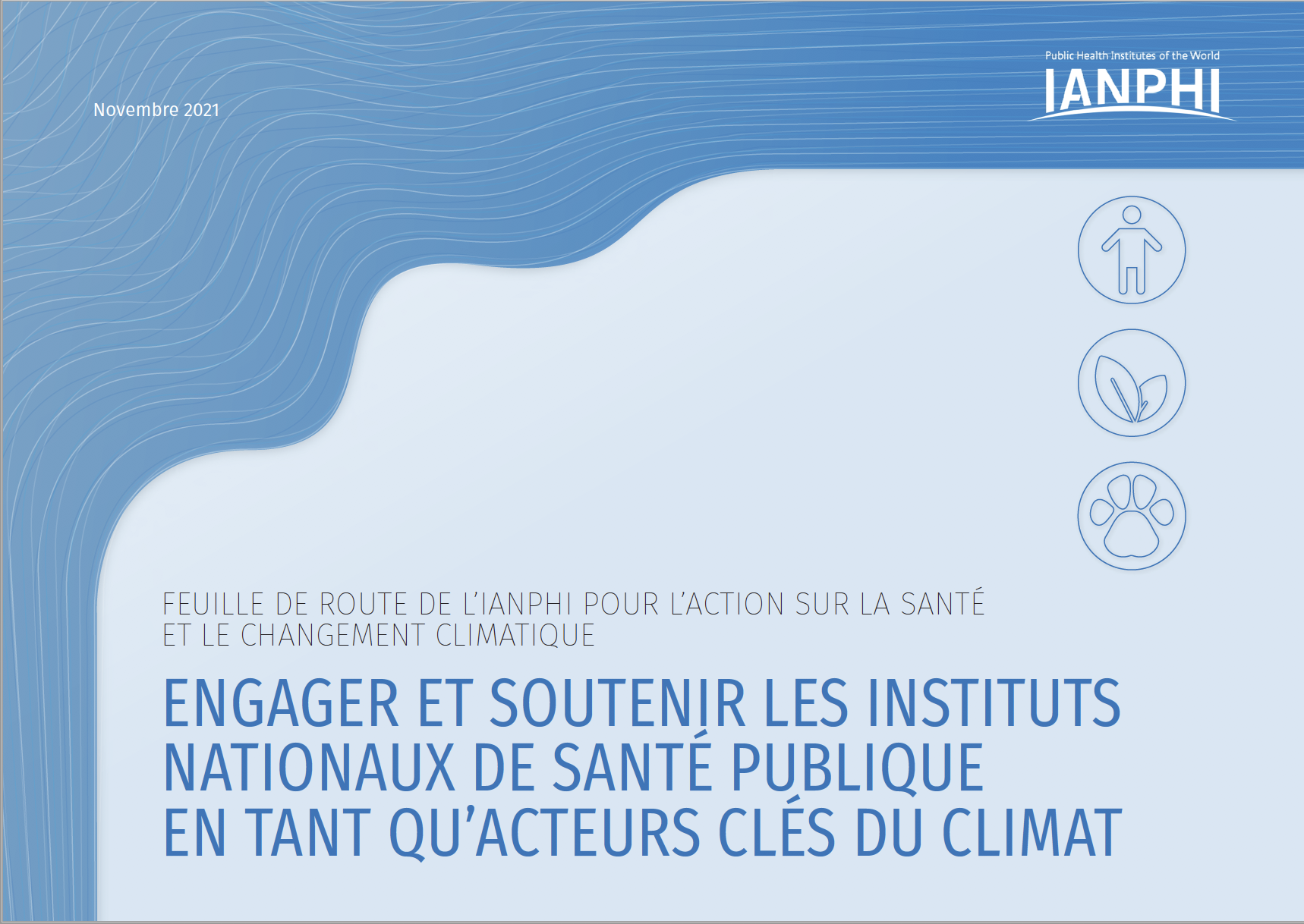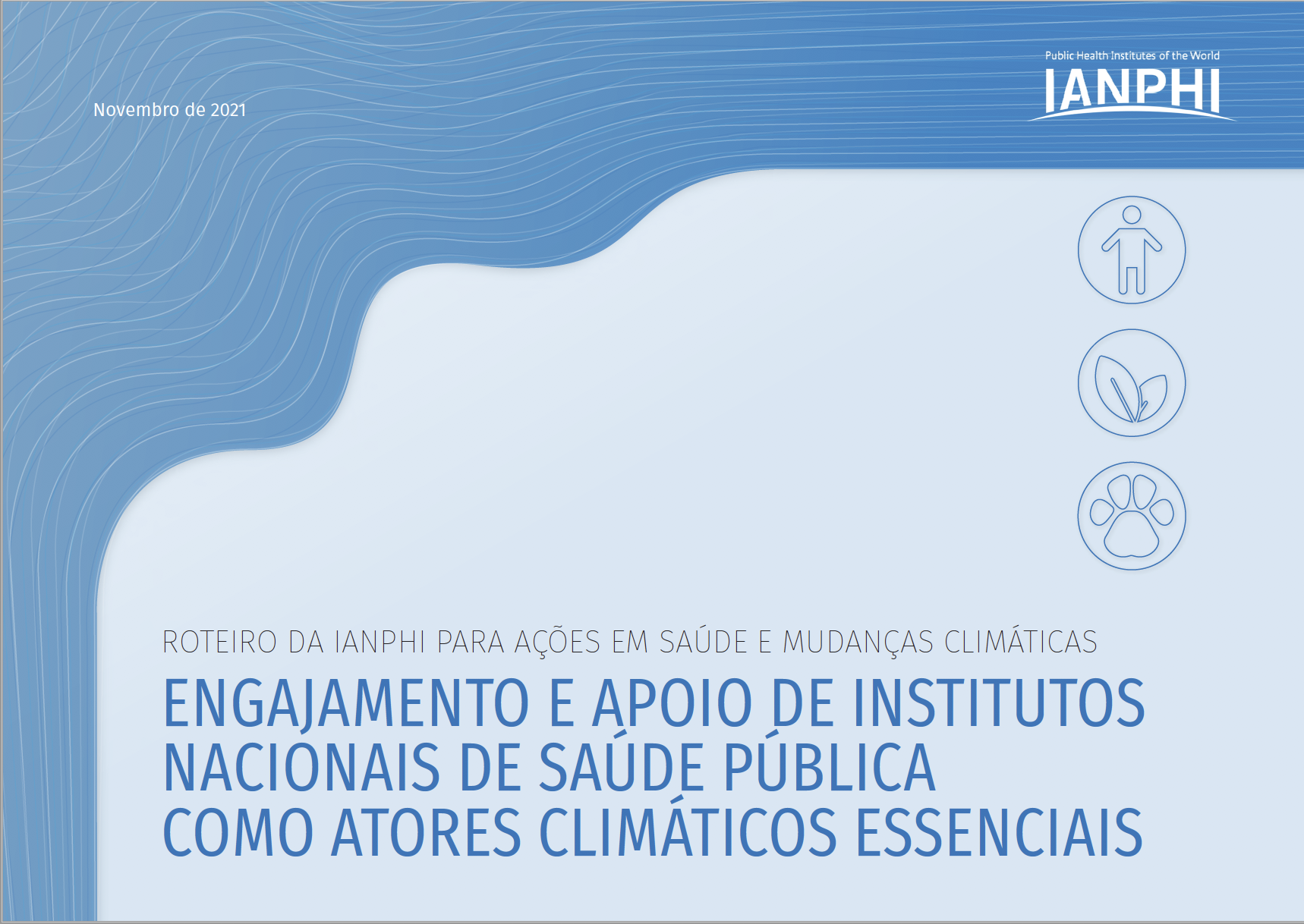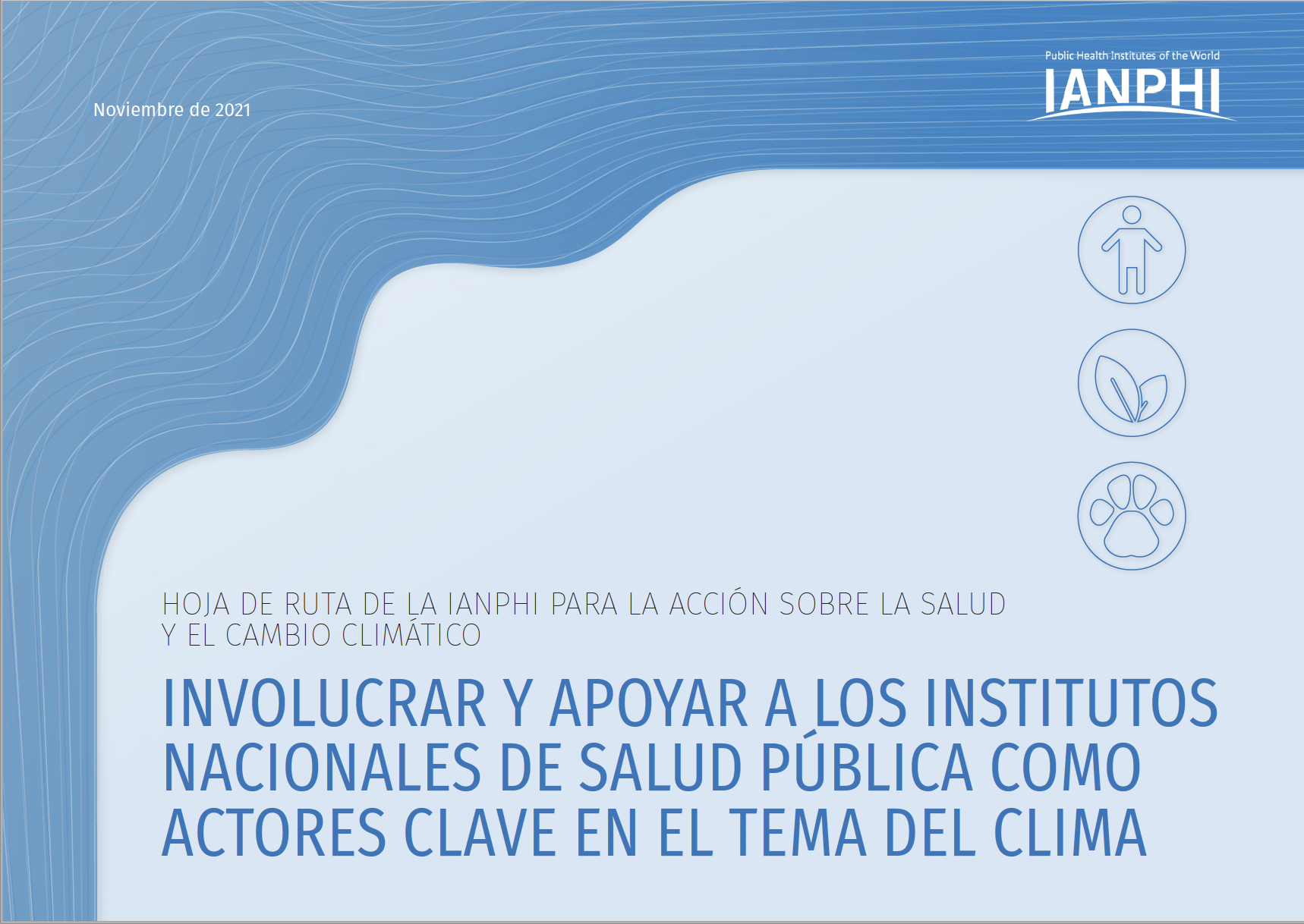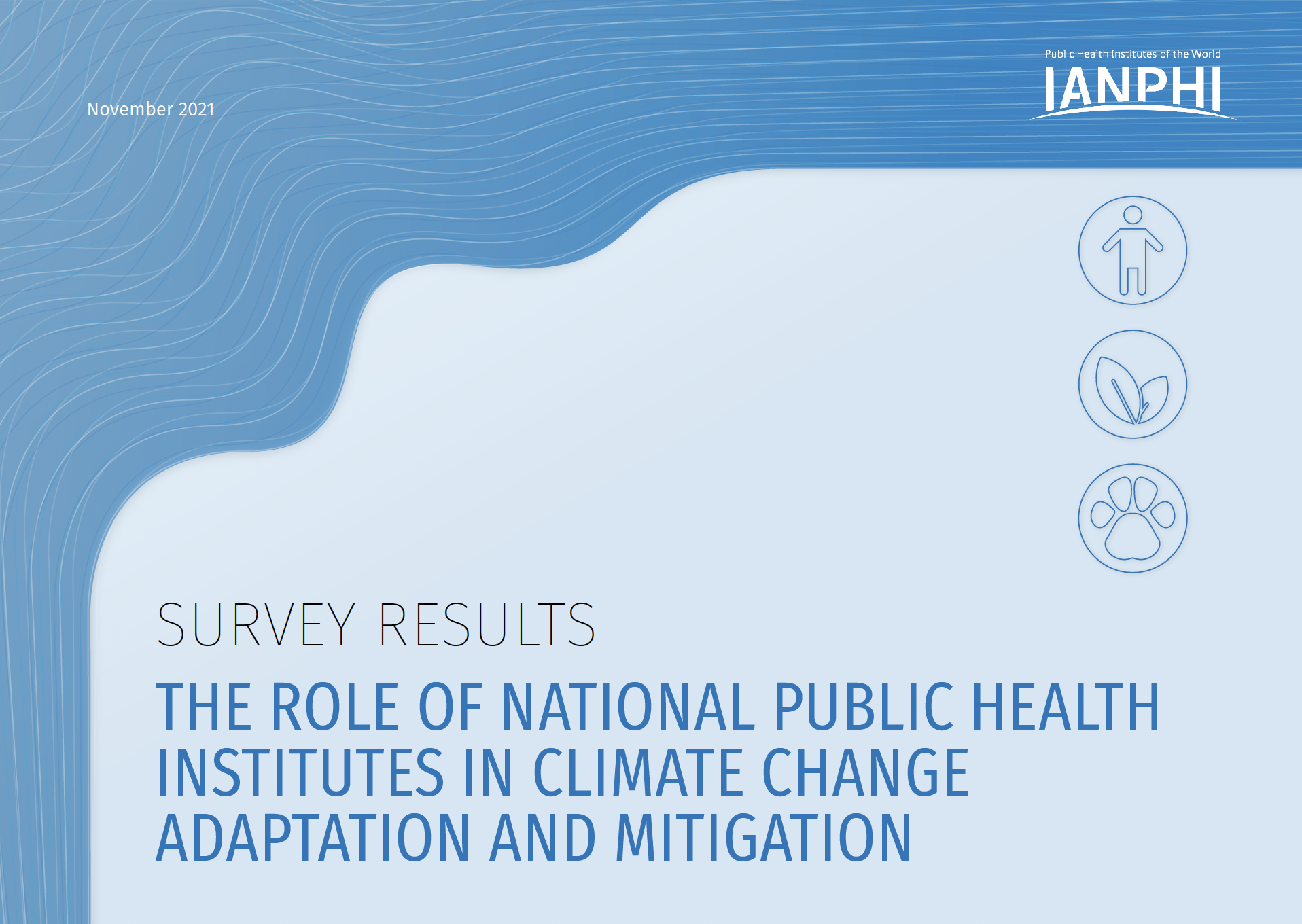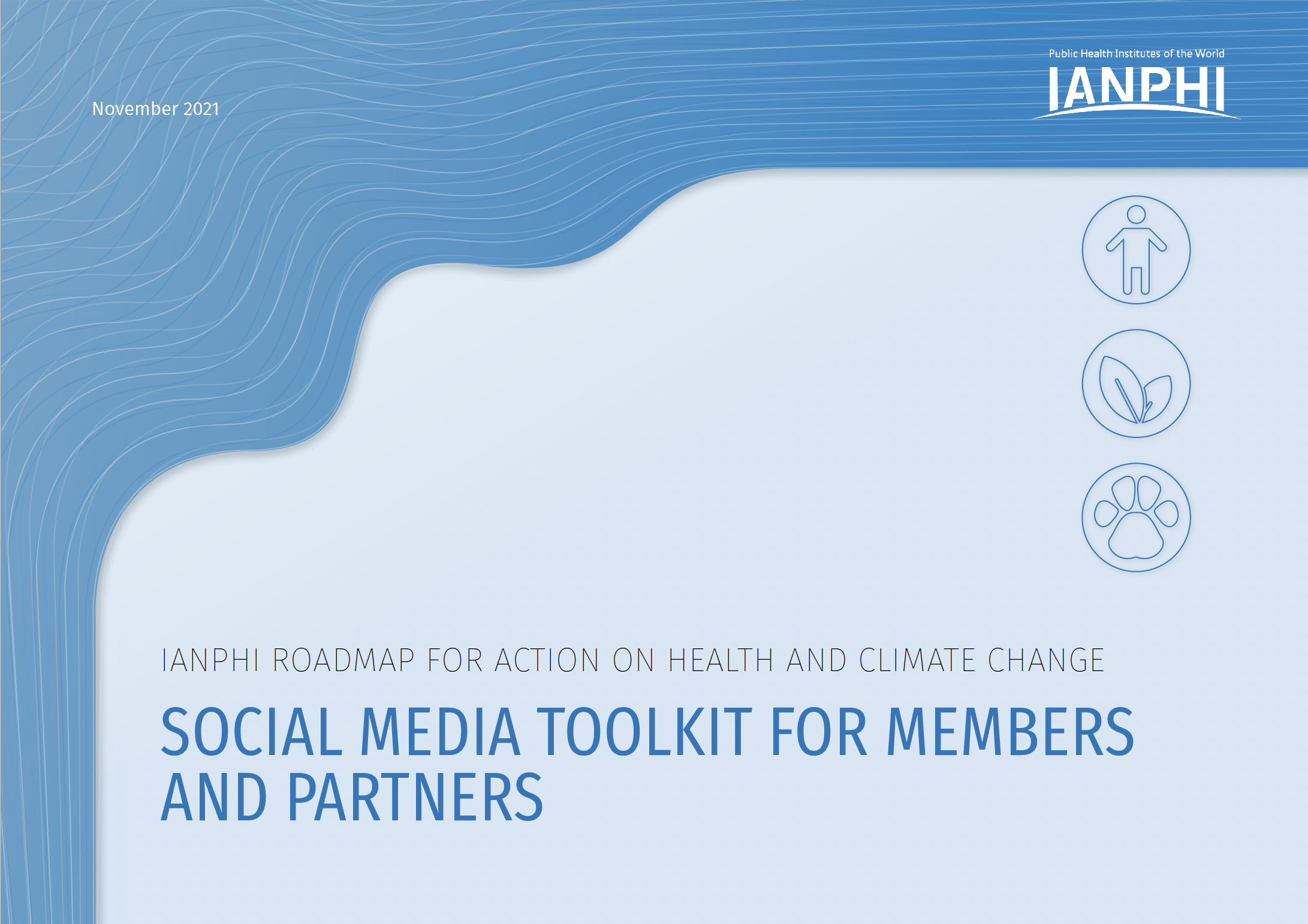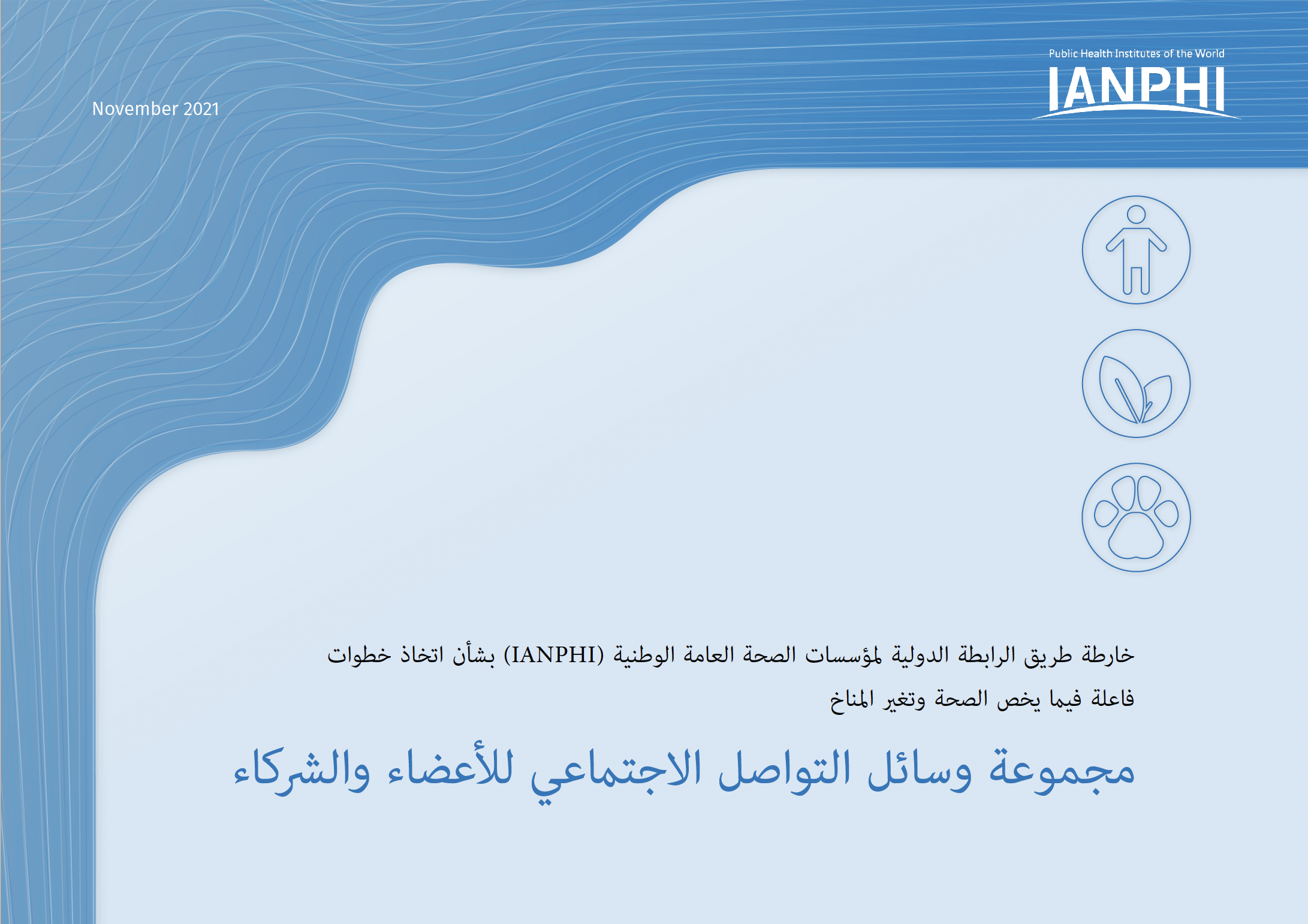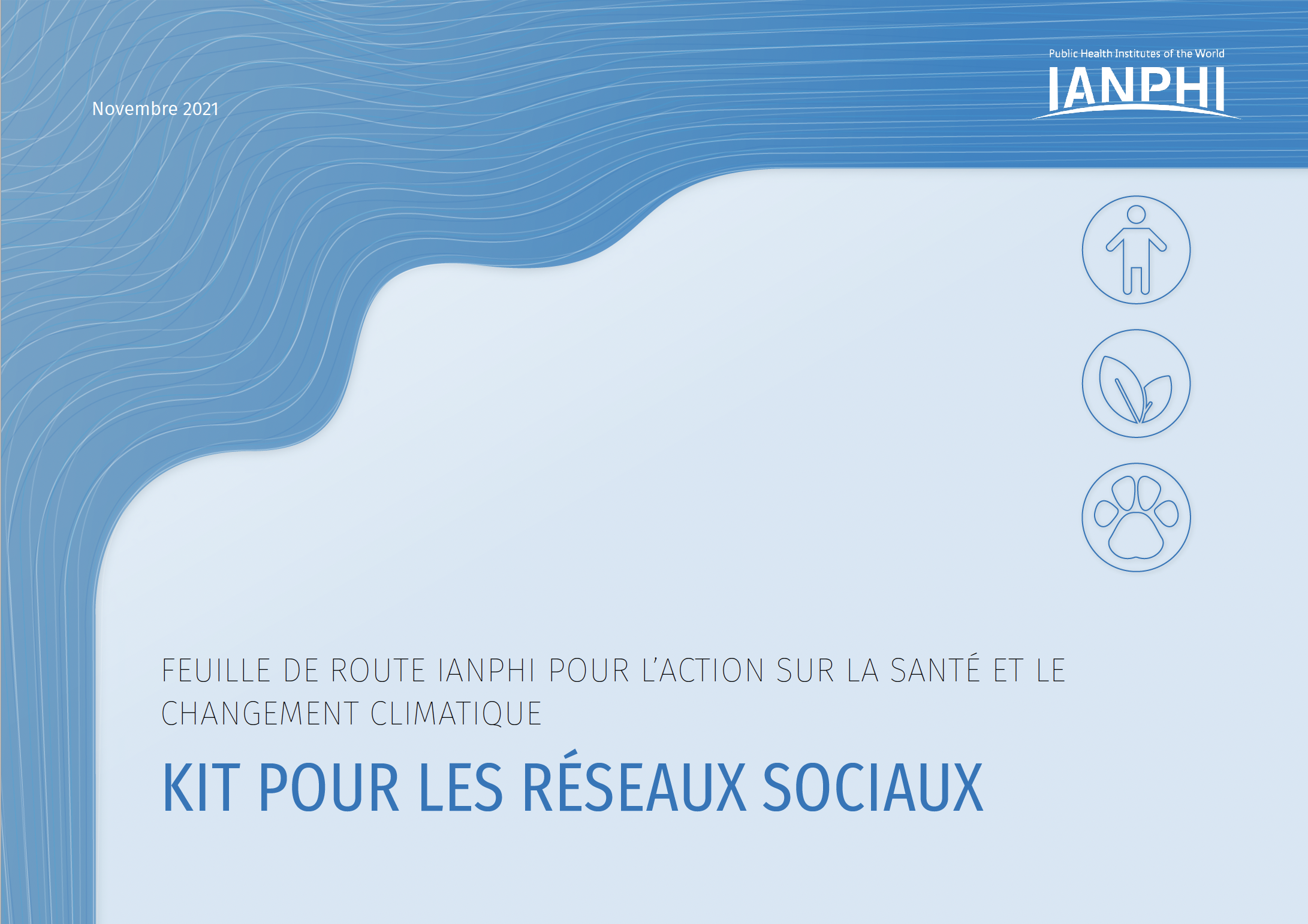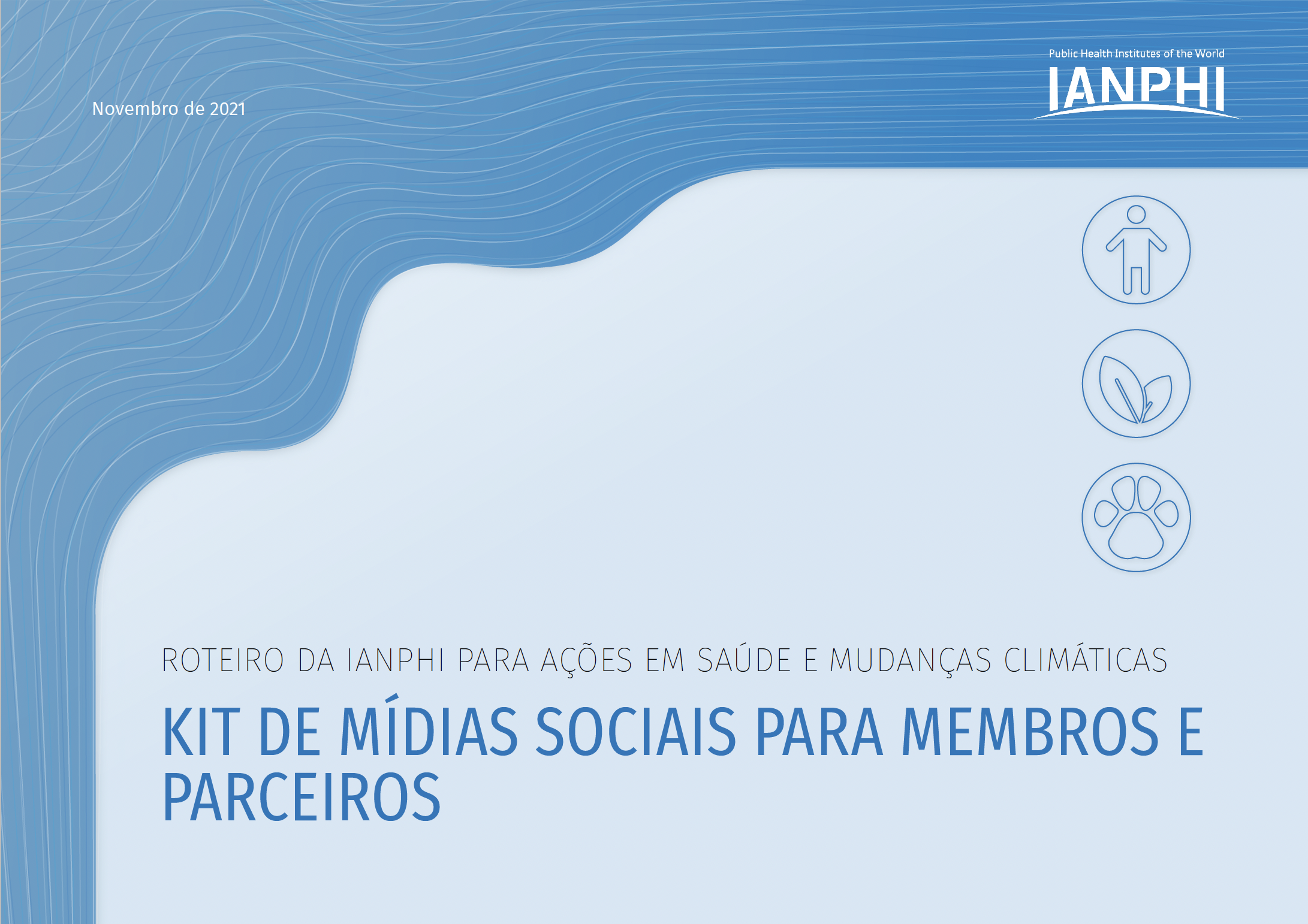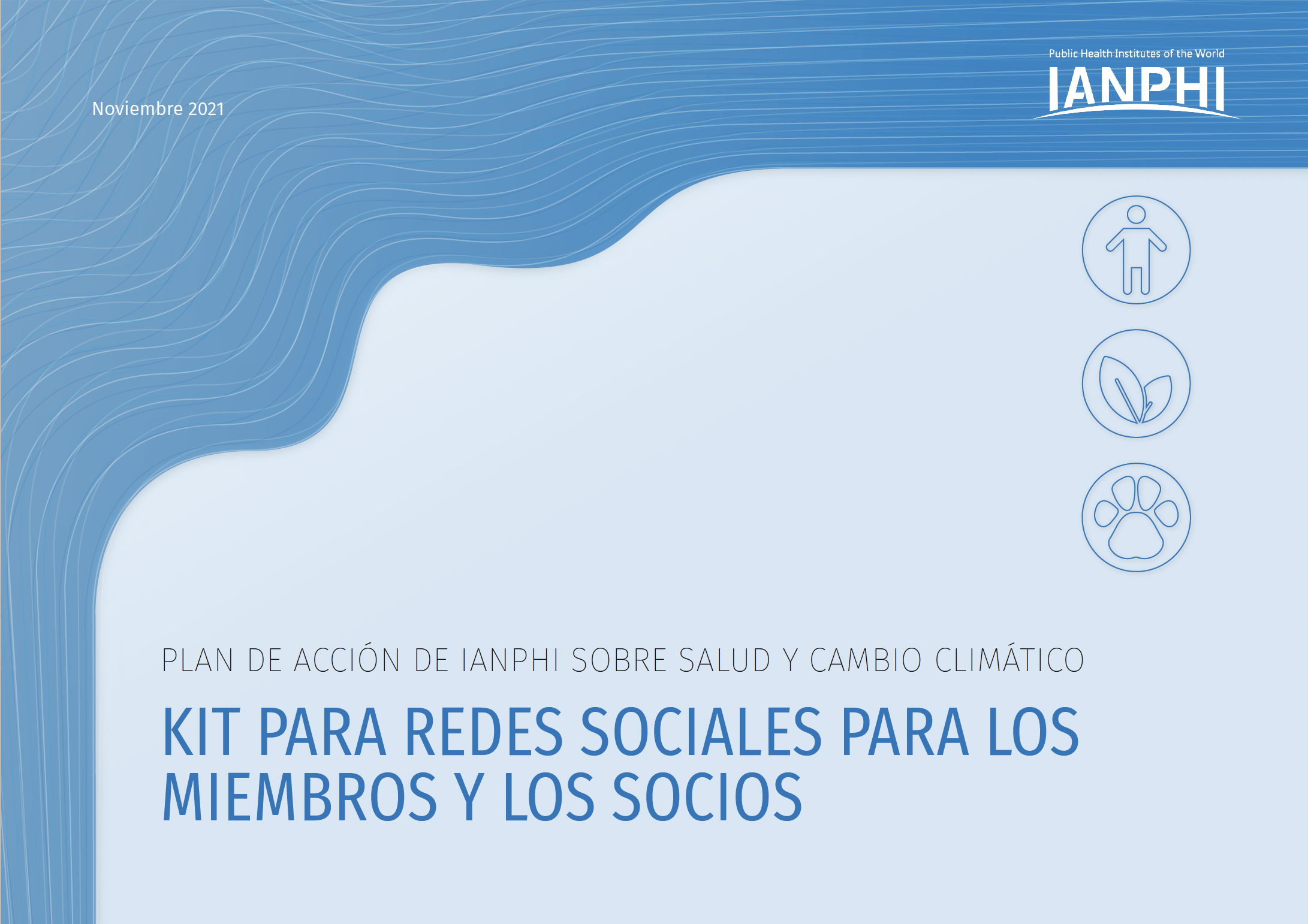Engaging and Supporting National Public Health Institutes as Key Climate Actors
IANPHI today launched the IANPHI Roadmap for Action on Health and Climate Change at the United Nations Conference on Climate Change (COP26) in Glasgow, Scotland, during a side event titled "The Untapped Potential of National Public Health Institutes as Key Climate Actors" (video recording available below).
The roadmap highlights and advocates for the existing and potential key role of national public health institutes (NPHIs) in climate adaptation and mitigation, and how they contribute to climate policies, research and action.
Motivated by the urgent need to act for the benefit of public health with regards to the degradation of natural systems, IANPHI supports the development of NPHIs’ capacity globally to be key advocates and actors of climate mitigation and adaptation.
The IANPHI Roadmap is available for download below in English, Arabic, French, Portuguese and Spanish.
Download in other languages:
Survey Results: The Role of National Public Health Institutes in Climate Change Adaptation and Mitigation
IANPHI also conducted an online survey between April and June 2021 to better understand the current involvement of NPHIs in climate change. The survey was answered by 43 NPHIs out of 112 that were contacted, including 110 current members of IANPHI and two future members. The survey results fed the IANPHI Roadmap for Action on Health and Climate Change.
The survey results are available for download below (English only).
Social Media Kit
IANPHI created a social media kit to encourage members and partners to promote the IANPHI Roadmap for Action on Health and Climate Change. The kit includes suggested messages and associated social media cards to raise awareness of the role of NPHIs responding to climate change, and on the importance of including public health in climate change policies.
The social media kit is available for download below in English, Arabic, French, Portuguese and Spanish.
Download in other languages:
COP26 Event: The Untapped Potential of National Public Health Institutes as Key Climate Actors
Watch the video recording of "The Untapped Potential of National Public Health Institutes as Key Climate Actors", an event co-hosted by IANPHI, Santé publique France and UKHSA, which took place on November 10, 2021 at the WHO COP26 Health Pavilion in Glasgow, Scotland.
Several NPHI leaders spoke at the event, including Prof. Geneviève Chêne, chief executive of Santé publique France, Dr. Juan Ángel Rivera Dommarco, director general of Mexico's Instituto Nacional de Salud Pública, Dr. Jaana Halonen, research program director of Safe and Health Promoting Environment at the Finnish Institute for Health and Welfare, and Dr. Chinwe Ochu, director of Prevention Programmes and Knowledge Management at the Nigeria Centre for Disease Control.
Prof. Chêne acknowledged the impact of climate change on public health by pointing to the catastrophic heat wave that caused the death of nearly 15,000 people in France during summer 2003. Cooperation between different institutions increased as a result, and Santé Publique France implemented a sophisticated surveillance system with the national weather forecast agency. “We all share the growing recognition that climate change, loss of biodiversity and the destruction of nature are major threats to global public health," she said. "The far-reaching consequences of the COVID-19 pandemic also support the needs for a stronger integrated vision of climate, biodiversity and health (...) It is our responsibility, as national public health institutes, to mobilize essential public health functions to act for healthier environments, to mitigate or reduce the impact of climate change.”
For Dr. Rivera, one of the key challenges is that public health professionals and relevant stakeholders do not always understand the interlinks between public health and the degradation of the natural planetary systems. This is why Mexico's INSP recently launched a Planetary Health Program, which aims to increase the knowledge of public health professionals on this issue.
The institute is also acting to change the food system. It developed a healthy diet adapted to local conditions and meant to environment-friendly. Guidelines about the diet will be published next year and have already received the approval of the Ministry of Health, the Ministry of Agriculture and the Ministry of Education.
According to Dr. Halonen, the key challenge in Finland is to motivate people and institutions to act since the effects of climate change appear to have been quite modest in the country so far. The Finnish Institute for Health and Welfare contributed to the Climate Change Adaptation Plan 2021-2031 with the Ministry of Social Affairs. The plan covers several aspects of health, such as non-communicable diseases, communicable diseases, nutrition and health, occupational health and well-being. With over 40 objectives and 90 recommendations for actions, it is an ambitious plan, which can be used by different types of organizations, researchers, and the public.
Dr. Ochu mentioned the need to develop multi-sectoral collaborations in Nigeria. The country is facing several challenges, including an exclusion from policy-making on climate change, a lack of awareness and commitment from stakeholders, and the difficulty to collect data and combine it with other database to study the impact of climate change on health. Nigeria CDC is working closely with the national meteorological agency to link data from climate change with disease outbreak. They developed an integrated disease surveillance and response system. The collaboration between both institutions will feed an advocacy plan aimed to spur political action.
